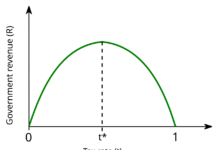A $40 million public contract for the purchase of bullets ended up in bank accounts in the Balkans.
A director was fired for reporting irregularities in defence contracts.
And multi-million-dollar air raid shelters crumbled under the first attack.
These are just some of the deep cracks in the Ukrainian system. Yet, on this very system, the European Union is building the hypothesis of accelerated EU accession for Ukraine.
Quousque tandem abutere patientia nostra?
Since the beginning of the conflict, the issue of Kiev’s entry into the EU has been viewed through an ideological lens. This is now the usual way of reporting on wars: we start with values and end up losing sight of reality.
The debate is polarised and often naive. It is said that Ukraine’s entry is a foregone conclusion, with no fundamental obstacles.
However, there are obstacles, and they are neither moral nor emotional. They are legal, institutional and political.
‘This is a victory,’ President Volodymyr Zelenskiy said as he hailed the EU's move to accept Ukraine as a candidate to join the 27-nation bloc and promised not to rest until full EU membership and Russia's defeat had been secured https://t.co/Un4wA8YsxO pic.twitter.com/sRcJlvcl1y
— Reuters (@Reuters) June 24, 2022
The Copenhagen criteria
Let’s start with the regulatory basics: to join the Union, a country must meet the Copenhagen criteria:
- Democratic stability and respect for human rights;
- A functioning market economy;
- The ability to adopt the entire body of Union law, the acquis communautaire.
Today, Ukraine is not even close to meeting these standards.
Currently, the country has a worrying level of corruption, a chronic problem which has plagued Ukraine for decades, which was also at the heart of Ukrainian President Volodymyr Zelensky’s election campaign in 2019.
At the time, Zelensky, then an outsider, promised an uncompromising fight against the rotten system of favouritism, bribery and oligarchs.
This has not been conducted
According to Transparency International’s Corruption Perceptions Index 2024, Ukraine ranks 105th out of 180 countries, with a score of 35 out of 100.
To put this into perspective, Ukraine ranks well below Serbia, Albania, Moldova and Georgia, all countries that have been waiting for years for a response from Brussels.
This is reinforced by reports from the European Court of Auditors, according to which ‘large-scale corruption remains a serious and systemic threat, and the actions taken by the EU between 2016 and 2019 have had a modest and fragmented impact’ (Special Report 23/2021).
Recent events confirm all of this.
In January 2024, five officials from the Ukrainian Ministry of Defence were arrested on charges of embezzling almost $40 million intended for the purchase of ammunition.
In January 2025, the head of the same Defence Ministry, Defence Minister Rustem Umerov came under investigation by Ukraine’s National Anti-Corruption Bureau for alleged abuse of power after he overruled a board decision on procurement, Euronews reported at the time.
Meanwhile, OLAF, the EU’s anti-fraud body, has recommended the recovery of €91 million in European funds for serious irregularities in the purchase of generators for Ukraine.
These are not isolated incidents. These are symptoms.
"Ukraine’s National Anti-Corruption Bureau (NABU) and the Specialised Anti-Corruption Prosecutor’s Office (SAPO) exposed a corruption scheme involving over UAH 733 million (approx. US$17.8 million) in embezzled funds during food procurement for the Armed Forces in 2022-2023. The… pic.twitter.com/RnT1WWpj4m
— Rob Lee (@RALee85) April 2, 2025
A market economy?
In addition to endemic corruption, Ukraine does not even meet the second of the Copenhagen criteria: the economic criterion.
According to the European Commission’s assessments, updated to 2024, Ukraine scores 1.5 out of 5 for both the functioning of its market economy and its ability to compete in the EU internal market. This is a ‘not classified’ rating.
Ukraine’s GDP per capita, according to the International Monetary Fund, remains not only below the EU average but also below that of countries such as Albania and North Macedonia.
Add to this is the country’s absolute dependence on external aid: in 2024 alone, the World Bank approved funding of over $2 billion just to ensure internal stability and pay public salaries.
Of course, Ukraine is a country at war. And no one expects a battered economy to immediately return to normal. But that is precisely the point: it is unthinkable to imagine accession in the short term, when years of reconstruction and tens of billions in post-war funds are needed to restart infrastructure, businesses and public institutions.
That is all the more so since the European Union itself is not in a position to bear a new systemic burden.
The EU is in the midst of a technical recession. Total debt has exceeded critical levels and six Member States have exceeded 100% of their GDP in public debt.
On top of this, there is the ongoing trade war, which is further worsening the economic outlook for the euro area.
CAP
Then there is another issue, almost completely absent from public debate, but which risks having very serious repercussions at the domestic level for many Member States, not least for Italy: the Common Agricultural Policy.
If there is one solid pillar of the Union, it is the CAP.
It accounts for around 31% of the European budget and guarantees direct payments to farmers based on cultivated area, as well as financing rural development and environmental sustainability programmes.
In other words, the more hectares you have, the more money you get.
Under the current system, the total agricultural area of the EU is around 157 million hectares.
The entry of Ukraine — which alone has over 41 million hectares of arable land, much of it managed by agro-industrial giants — would mean an increase of almost 26% in the area to be financed.
But the CAP budget would not increase accordingly.
The result? Across-the-board cuts for everyone.
According to estimates published by UNSIC (National Union of Entrepreneurs and Farmers), if current payment levels per hectare (around €343) were to be maintained, the EU would have to increase the CAP budget by more than €95 billion.
This is unrealistic, given the already critical state of European finances.
The opposite scenario is more likely: keeping the budget unchanged and reducing support.
This would lead to an average cut of 20% in aid to European farmers.
The EU’s ‘mutual defence clause’
The last but decisive issue revolves around Article 42 of the Treaty on European Union.
This is the article that commits each Member State to provide military aid and assistance to another Member State that is the victim of armed aggression. In EU jargon, this is called the ‘mutual defence clause’.
Paragraph 7 of Article 42 foresees:
“If a Member State is the victim of armed aggression on its territory, the other Member States shall have towards it an obligation of aid and assistance by all the means in their power, in accordance with Article 51 of the United Nations Charter. This shall not prejudice the specific character of the security and defence policy of certain Member States.
Commitments and cooperation in this area shall be consistent with commitments under the North Atlantic Treaty Organisation, which, for those States which are members of it, remains the foundation of their collective defence and the forum for its implementation.”
🔴🇪🇺 The European Commission confirmed the mutual defence clause would apply to #Greenland in case of military aggression.
"In the event that a EU State is the victim of armed aggression on its territory, the other EU States owe it aid & assistance by all means in their power." pic.twitter.com/7clCCQrjBk
— Other Europe 🇪🇺 (@other_europe) January 14, 2025
Now, let us imagine Ukraine as an EU member.
This means that any escalation with Moscow, even if only hypothetical, would become a direct matter for the Union. And therefore ours.
It is not just a question of funds or reconstruction. It is potentially a question of men and resources. Of conflict.
At that point, declarations of support or logistical aid would no longer be enough: Italy, like all other EU countries, would be legally bound to intervene.
Are we ready to take on a proxy war?
Are we sure that our national security is compatible with membership that brings the front line to our doorstep?
For now, no one seems to be asking the question.
Conclusion
Here, I have discussed structural corruption, a comatose economy, a CAP that would collapse under the weight of 40 million hectares to subsidise, and finally the risk – never publicly discussed – that a treaty article would tie our hands and feet to a war we did not choose.
All of this should be enough to suspend the possibility of Ukrainian EU accession from public debate.
However, this is not the only inconsistency that the European Union stumbles over when it comes to enlargement.
Just think of the countries promoted to candidate status in 2022: Bosnia, where anti-Christian and anti-minority parties thrive; Moldova, where the state does not even control all of its own territory.
All these countries, due to their recent history, internal structure and level of governance, do not meet the minimum criteria for accession, nor do they have a cultural and religious background compatible with that of the other Member States.
So we focus so much on the desire to ‘protect’ Ukraine under the blue flag, an issue that has monopolised European debate for the last three years.
But one thing is never mentioned: the identity that the Union should have today.
The founding values seem increasingly distant, repeated empty words, weakened by their very invocation.
And then, let’s face it: it is not enough to have values. If they do not become a clear compass for political and institutional choices, they are just slogans for press conferences.
Someone said: ‘Europe is either this or it is not’.
Fine. But today… quo vadis, Europe?
Disclaimer: www.BrusselsReport.eu will under no circumstance be held legally responsible or liable for the content of any article appearing on the website, as only the author of an article is legally responsible for that, also in accordance with the terms of use.













